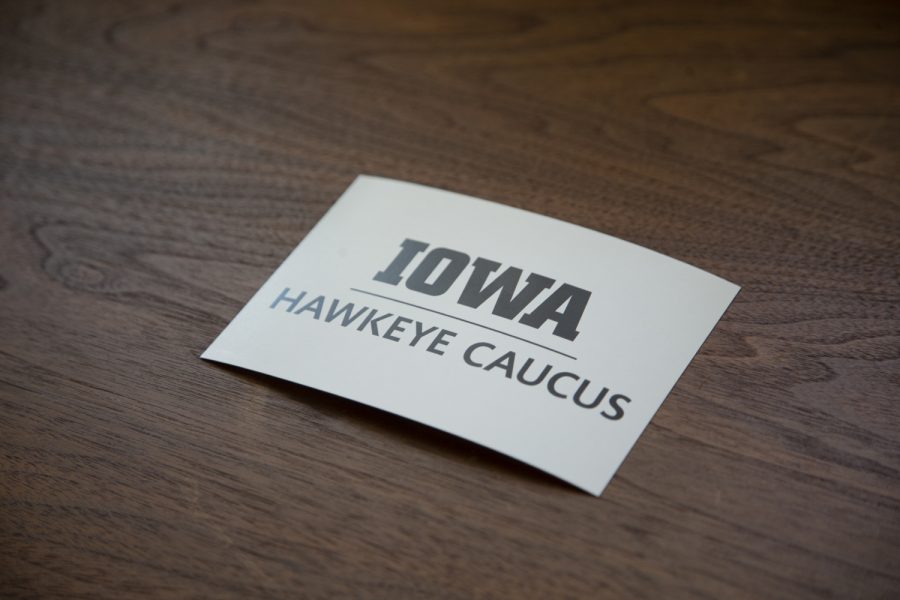UI student governments give voice to students through postcards to lawmakers
UISG and GPSG partnered with Hawkeye Caucus to send postcards to state legislators to voice student concerns of funding and medical amnesty.
A postcard sits on a table outside the Old Capitol Senate Chambers on Tuesday, Oct. 29, 2019. During a Faculty Senate meeting, members were given cards and encouraged to write to elected officials about the importance of higher education funding.
October 30, 2019
University of Iowa Student Government and Graduate and Professional Student Government partnered with Hawkeye Caucus this fall to launch a postcard campaign advocating for legislation that benefits students.
Each year, UISG and GPSG take advantage of the increased effectiveness of sending postcards rather than emails before lawmakers head to Des Moines for the January legislative session, GPSG President Dexter Golinghorst said.
“The postcard campaign is a long-standing tradition in student government,” Golinghorst said. “It is an opportunity for students to engage with [legislators] and kind of get an early feel for advocacy and government relations.”
RELATED: GPSG creates local-restaurant passport for climate conscious eating
GPSG Government Relations Chair Paul Esker said it’s important for lawmakers to recognize the UI students’ voices.
“We want to share students’ firsthand stories with members of the Iowa Legislature,” Esker said in an email to The Daily Iowan. “We’re hoping to demonstrate how important the University of Iowa is for the state of Iowa.”
Golinghorst mentioned that the postcards are a low-cost, low-commitment way to give UI students a face and a voice in the state Legislature. He also noted that the postcards create a more personal connection between the students and legislators, while emails tend to get lost in inboxes.
“If we are sending them a physical postcard, they are grabbing it out of their mailbox, and it is in their hand,” Golinghorst said.
Golinghorst and Esker both said one of the main points GPSG is advocating for is funding. Golinghorst said GPSG is asking for the appropriations that the state Board of Regents requested.
“By sharing stories about the impact that a [UI] education has on its students, we hope legislators feel excited about voting to appropriate funds to the University of Iowa during the 2020 legislative session,” Esker said.
RELATED: Students advocate for state funding, UI support during Hawkeye Caucus
Golinghorst also said GPSG is working to highlight the importance of retention in areas such as the health sciences.
“An issue that we are trying to work with legislators on is the retention of some of our graduate/professional students in needed shortage areas,” Golinghorst said.
UISG Governmental Relations Director Connor Wooff said UISG is focusing its postcard campaign on medical amnesty.
“It is really a pivotal year for medical amnesty and whether we pass it or not,” Wooff said.
Wooff said that medical amnesty has been on the UISG legislative agenda for about five years.
“Essentially, [medical amnesty] is a law that would grant limited legal immunity to underage people in alcohol related emergencies,” Wooff said.
RELATED: UISG-backed medical-amnesty bill advances in Iowa Legislature
The medical amnesty law exists in 41 states and Iowa is one of the nine that haven’t yet adopted the legislation. Wooff said Iowa is the only state in the Midwest that has not approved medical amnesty. At the UI, medical amnesty exists for on-campus incidents, but not for off-campus situations, Wooff said.
Golinghorst emphasized the importance of UI student-government bodies keeping the postcard campaigns and issues advocated for as nonpartisan as possible.
“Our agendas are always fairly nonpartisan,” Golinghorst said. “We are just advocating for student needs.”




